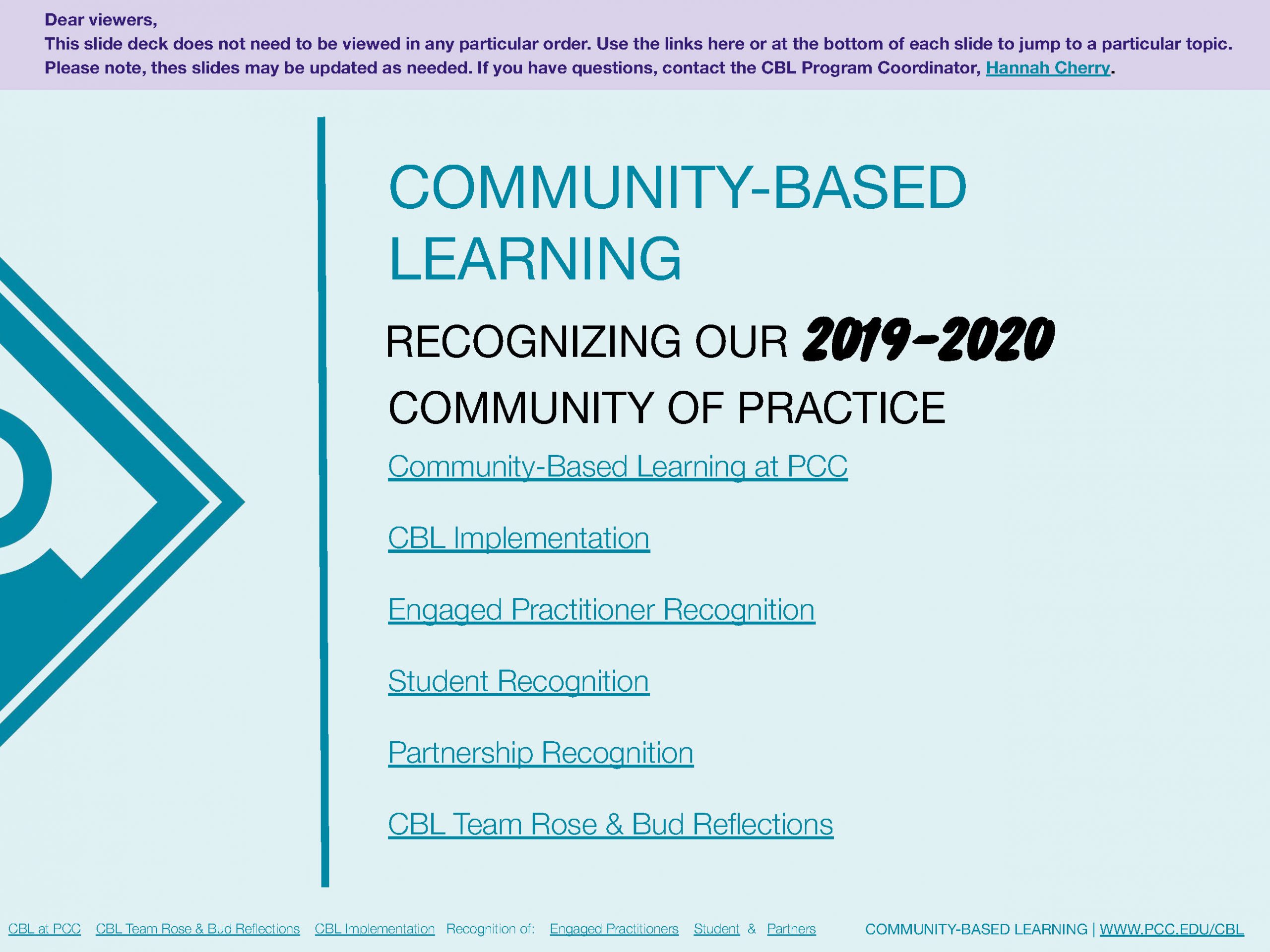This content was published: June 19, 2020. Phone numbers, email addresses, and other information may have changed.
Recognizing our 2019-2020 Community of Practice
Posted by hannah.cherry

Typically we end each Academic year by gathering to celebrate and recognize our Community of Practice. This year, we wanted to find a way to do that while we are working and learning remotely. We’ve put together a slide deck to highlight the efforts of our Faculty, Students, and Community Partners. This slide deck does not come anywhere close to replicating the joy and camaraderie of our in person celebrations. It is simply a way to recognize our individual and collective efforts during this unprecedented time.
The COVID-19 pandemic has upended every aspect of the way we teach, learn, and engage in community. We know that it takes very intentional work to develop and integrate community-based learning. There are always external factors that make implementation “messy,” challenging, or, for many instructors this Spring, nearly impossible. Yet, there were many faculty who pivoted to virtual CBL – in part because of their strong relationships with community partners and/or previous online CBL projects/assignments!
To all of our PCC Faculty, we want to reiterate that the effort it takes to prepare a high impact community-based learning assignment is never time or energy wasted. While the output may vary from term to term, the path to get there is still worth taking. We hope you can see it as an opportunity to unravel an old garment and reweave your own teaching philosophy and practice into something that fits you now, in this moment. Engaging in this kind of inner and outer work requires us to be critically reflective with ourselves and the education systems with which we work. This is meaningful and important work that must be prioritized.
The CBL Program will continue to support you and offer opportunities for professional development. We are re-envisioning what community-based learning at PCC needs to be in order to truly acknowledge and address the systemic inequities that have a disproportionately negative impact on our BIPOC students, faculty, staff, and communities. We hope you will join us during the 2020-2021 academic year!

